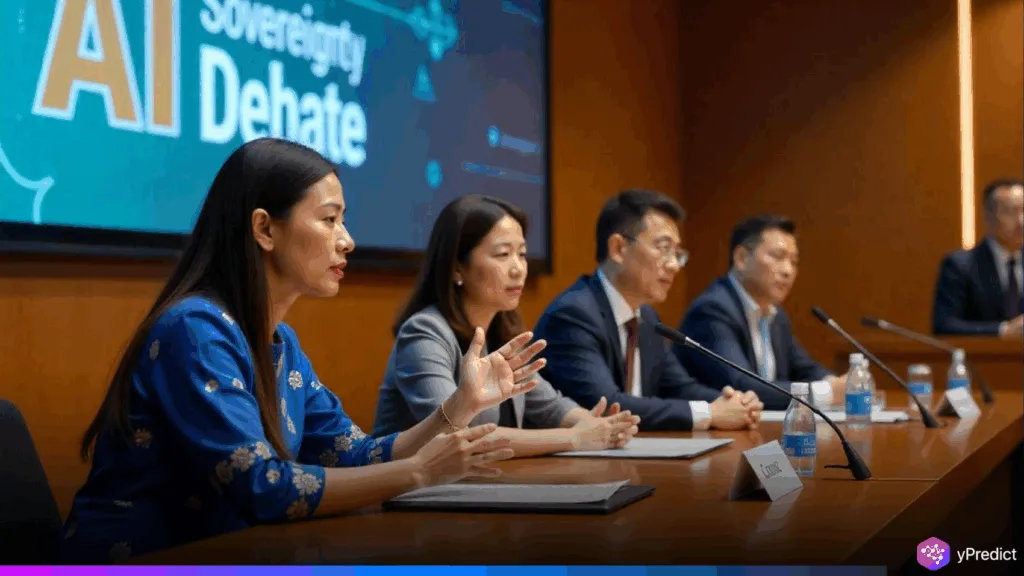
Speaking at the ASEAN-GCC Economic Forum in Kuala Lumpur, Malaysia’s Prime Minister Anwar Ibrahim sparked a heated discussion about whether artificial intelligence (AI) might need to operate outside the traditional frameworks of national sovereignty.
This occurred during a panel discussion with Vietnamese Prime Minister Phạm Minh Chính and Peng Xiao, CEO of G42, a UAE-based AI company.
Anwar argued that conventional definitions of sovereignty may no longer suffice in the age of intelligent machines. “Governments are there to protect sovereignty, but the word ‘sovereignty’ actually predates new technology,” Anwar said. He proposed developing new frameworks that allow AI to operate autonomously, perhaps akin to the diplomatic immunity embassies enjoy.
Embracing AI with Caution
Although Anwar and Chính have both recognized the importance of embracing AI in order to be competitive at a global level, both leaders emphasized caution. Anwar questioned how we can trust the values embedded in AI systems, cautioning not to blindly accepting machine decision-making. “Can human beings be purely dictated by these new technologies and machines?” he asked, suggesting countries need to safeguard cultural identity and human values through the inevitable onslaught of AI advancement.
On the other hand, Prime Minister Chính of Vietnam considered the economic and labor implications of the potential for broad AI acceptance. “We can’t let AI win the battle against human beings… to rob people of jobs, and to rob creativity,” he said, and encouraged setting up ethical limitations to guarantee that human development is at the forefront.
Sovereign AI and Global Tech Tensions
Both leaders addressed the increasing geopolitical tension in AI and chip manufacturing. Anwar highlighted Malaysia’s delicate position between China and the U.S., noting that while “China is an important neighbor,” the U.S. remains Malaysia’s top investor and the largest destination for its electronics exports.
With countries developing “sovereign AI” models tailored to their own languages and values, Anwar reiterated Malaysia’s role as a neutral platform for both Western and Chinese tech firms. This balancing act comes amid heightened scrutiny from the U.S., especially after recent reports mistakenly claimed Malaysia would use Huawei AI chips.
Closing the AI Gap for the Global South
The forum focused on the growing AI divide between the developed and developing world. Peng Xiao, the CEO of G42, mentioned that, for example, in Africa, unreliable power supply would be an obstacle for AI development, which could deepen existing inequalities across the globe. He estimated the global data center capacity would need to grow from its current capacity of 60 gigawatts to 500 gigawatts to fully support AI take-up.
Chính also commented that developed countries need to lead the way toward an inclusive AI future, saying, “No one country or one person is going to be able to overcome this dilemma,” and urged wealthier countries to help the Global South with its infrastructure and digital transformation, “Only then we can have a truly inclusive development where no one is left behind.”
Conclusion
As the AI revolution accelerates, Southeast Asian leaders are urging a rethinking of sovereignty, ethics, and inclusion in global AI governance. Malaysia’s call for sovereignty-free AI frameworks and Vietnam’s demand for human-first innovation highlight the complex, multi-dimensional challenges AI poses, especially for nations caught between global tech powers. Their message is clear: AI should empower, not replace, humanity—and it must be accessible to all.






